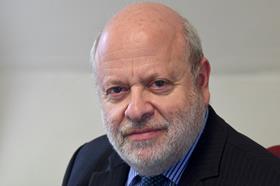
One is the guidance issued on ‘Convictions arising from matters of principle or social conscience’, already covered by the Gazette – and indeed its most commented article at the time of writing (with most of the comments critical of the SRA). This guidance stated that not all convictions for peaceful protest will automatically result in disciplinary action or refusal to admit as a solicitor.
Factors to be taken into account by the SRA will include ‘whether the offence caused or risked harm to others or damage to property, whether the type of offence involved undermining the rule of law or administration of justice, and whether there was a genuine desire to further a wider public, social, or environmental interest’. ‘Environmental interest’ – the words have now appeared in SRA guidance.
It is worth bearing in mind that this guidance is a response, whether intended to be or not, to the appeal issued to the SRA by Lawyers for Extinction Rebellion two years ago, at the beginning of September 2020. There was a demonstration at the time outside the Law Society – then closed because of the pandemic - to highlight the demands made of it and the SRA.
The group requested ‘that the SRA’s exercise of discretion in their assessment of character and suitability of lawyers who are climate activists and have been arrested or convicted for non-violent civil disobedience must be informed by the climate and ecological emergency we are facing’.
They also requested that ‘in respect of the non-violent acts of disobedience by the climate activist lawyers who may have more than one conviction for a public order offence, the SRA Character and Suitability Rule which considers more than one conviction indicative of ‘most serious’ criminal conduct leading to disqualification is inequitable and should be revised’.
The second document the SRA released last week was an explanation for the public of the term ‘Legal advocacy’ . One of the examples given was ‘People who influence the government on issues like climate change’. Times are changing.
The last fortnight have been a busy time for lawyers and climate change, because the week before that Steven Vaughan, a Senior Lecturer at the Faculty of Laws, University College London, published a very interesting research paper called ‘Climate Change and the Rule of Law(Yers): What Thinner and Thicker Accounts Might Require of Those in Practice’.
To summarise very complicated ideas (which are worth reading in full), he questions the notion of solicitors’ professional obligations as being merely to advise the client on the state of the law. Given that the first of the SRA’s principles is that we act ‘in a way that upholds the constitutional principle of the rule of law, and the proper administration of justice’, and that, if there is a conflict between the seven principles, those which safeguard the wider public interest (such as the rule of law) take precedence over an individual client's interests, he wonders what this means in the context of climate change.
He cites a thinner approach to the rule of law (which is more procedural and legalistic) and a thicker one (more substantive, based on the values of the rule of law and justice).
Many solicitors operate under the thinner approach: if the client wants it and it is lawful, then that is the solicitor’s role.
Under the thicker approach, the absence of a law against something, for instance, is not of itself the decisive matter – he quotes another academic saying that the equivalent of the thinner approach ‘casts ethical behaviour as little more than conformity to law without any real attention paid to the worthiness of any particular law or process’.
(Interestingly, the SRA has recently adopted something of this thicker approach in its guidance on SLAPPs, where it requires solicitors to take an independent attitude to their client’s wishes when it comes to the pursuit of some kinds of litigation.)
Steven Vaughan makes the point, too, that lawyers are at the crux of the rule of law. The courts have a higher profile, but, as another academic quoted puts it, ‘law is made and applied through lawyer counselling and planning and often this “private” law has public impacts as great as any ruling of a high court’.
Vaughan ends by calling for a debate about the role and functions of a lawyer in relation to the rule of law, with particular focus on climate change, which poses such existential challenges.
Personally, I agree with that call. Solicitors’ duties to the rule of law are not clear, because the meaning of ‘rule of law’ is itself contested. The formal entry last week of the SRA into the climate change arena makes such a debate overdue.
Jonathan Goldsmith is Law Society Council member for EU & international, chair of the Law Society’s Policy & Regulatory Affairs Committee and a member of its board. All views expressed are personal and are not made in his capacity as a Law Society Council member, nor on behalf of the Law Society































6 Readers' comments